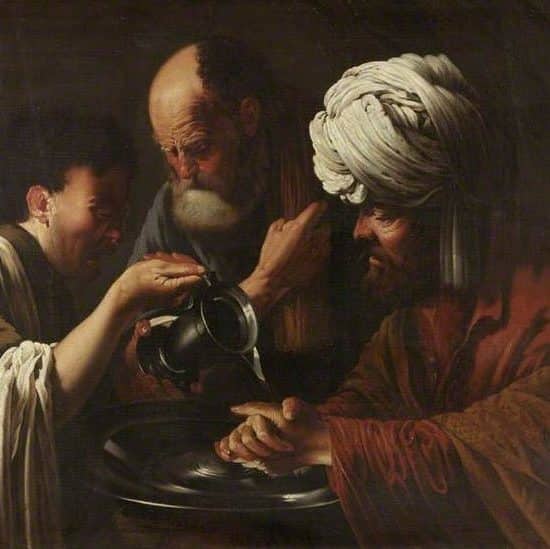More so even than Christmas, Easter is the signature observance on the Christian calendar. For most believers, this event is greater than a single annual worship event. This is an observance with the potential to draw us closer to God and remind us of his great love and never-ending presence in our lives.

Bill Webb
|
Initially, the appearance of the risen Christ frightened Jesus' followers. Jesus had restored a few dead people to life, but a cruel crucifixion had silenced the one capable of raising others. Despite his personal assurance that he would ultimately conquer the cross and death itself, even the most faithful had trouble comprehending or believing in such a resurrection before the fact.
Amazingly, after the initial shock of his return had worn off, these earliest believers simply took it as fact that Jesus had indeed triumphed over death. As a result, the fearful emerged as the fearless faithful and endured the worst abuses imaginable to people of their time to be his earthly witnesses.
Today, the remnant of believers — you and I are among them — knows even more about the love, sacrifice and ministry of Jesus than did those early followers, but we seem hardly a match for their devotion and courage. We know how the story ends, but we tend to hold back. The commitment many of us older Christians sang, "I surrender all," has slipped in our memories.
"Faithful unto death" may not have described all who claimed Christ's name in the first century, but it certainly described many. It is the reason the message of Christ gained a foothold from the start. It is the reason the gospel moved westward, eventually taking root in the lives of people who live on our own continent. You and I are obvious beneficiaries.
We often characterize our faith by what we do: "I'm a preacher. I'm a Sunday School teacher. I'm a seminary grad or professor. I am a convention employee. I am a member of a small group. I am a regular church attender. I tithe — on the gross. I participate in a community ministry. I visit a prison. I help feed the hungry." That list of good things to do is important, and the list can be endless.
My observation of those I most admire in the faith — historical, recent past and present — is that their faith has more to do with who and what they are than simply what they do.
Jesus himself did wonderful things, compassionate things and even miraculous things. But he became a bit frustrated that people followed him looking for a free meal, or simply for healing or expressing a kindly word or astounding with a miracle.
With his disciples, he got to the crux of his own significance to faith when he asked, "But who do you say that I am?" Another way of asking that might be, "You see me 24/7 in every life situation, so who am I? What encompasses me in every situation of life; what is the common denominator? I suspect Jesus would not have been satisfied to hear a litany like: You are a miracle worker. You are a healer. You are a great teacher. You do this. You do that.
If the key question Jesus asked his followers about himself is: "Who do you think I am," then his question may be the most important for us, too. Dare we ask it among those who really know who and what we are? Dare we ask it of ourselves?
We believers are sometimes like many others in our world. We live dual lives. I am one thing when I am teaching a Sunday School class or participating in a ministry, but I may not be as preoccupied with Christ or even as mindful of him in other pursuits in my life.
Some refer to this as compartmentalization. God gets a share but he isn't necessarily allowed into every area of life, including my job, child-rearing, recreational pursuits, social activities, other personal relationships — you fill in the blanks. Our "I surrender all" becomes more of an "I'll draw close with a small piece of my life — with limits, of course."
I fear that the future of the gospel of Jesus Christ in our world is in doubt because many of us take too little personal responsibility for keeping the message of resurrection alive. I believe that is true of me personally. If the future of the faith depended upon me, would Christianity have a future? Or would the provision of God through his Son have been for naught for future generations?
The question really is whether we really are willing to allow our very identity — who we truly are — to be bound up in the identity of the one we call Savior and Lord — the one who has given us eternal life but longs for us to spiritually become the new man, the new woman or the new boy or girl he envisions. Easter is a season that calls each of us to become and to be able to answer for ourselves in a satisfactory way, "But who do people say that you are?"
We are, after all, the people of God.
Bill Webb is editor of Word&Way.

